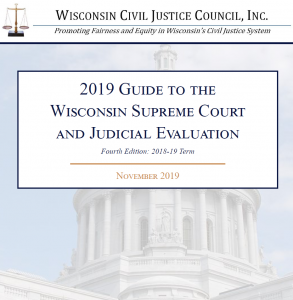As Wisconsin government and the public struggle with the COVID-19 pandemic, Wisconsin courts remain operational but with reduced calendaring.
- Subject to certain exceptions, all proceedings in Wisconsin courts are to be conducted via remote audio-video technology if practicable. (Supreme Court order)
- Wisconsin Supreme Court March 18, March 30, and April 1 oral arguments cancelled. (More on oral arguments)
- State courts administrative offices closed until at least April 3. (March 17 press release)
- Some appellate filing deadlines extended and other filing procedures amended. (Supreme Court order, extended order)
- Nonemergency motions to the Court of Appeals and Supreme Court are discouraged through April 3. (Supreme Court order)
- Many individual circuit courts have issued emergency orders related to COVID-19. (See COVID-19 tab at https://www.wicourts.gov/.)
- The Supreme Court has also temporarily increased the number of credits from on-demand programs that lawyers may use to satisfy CLE requirements.
- Civil and criminal jury trials are suspended until May 22.
- The Supreme Court has postponed bar admissions ceremonies through May and instituted temporary procedures for admission to the bar.
- The Supreme Court has established a temporary rule for the remote administration of oaths at depositions via remote audio-visual equipment.
- The Supreme Court will hold a public hearing on May 1 (with written comments open until April 24) and its interim rule to temporarily suspend statutory deadlines for civil jury trials due to the pandemic.

